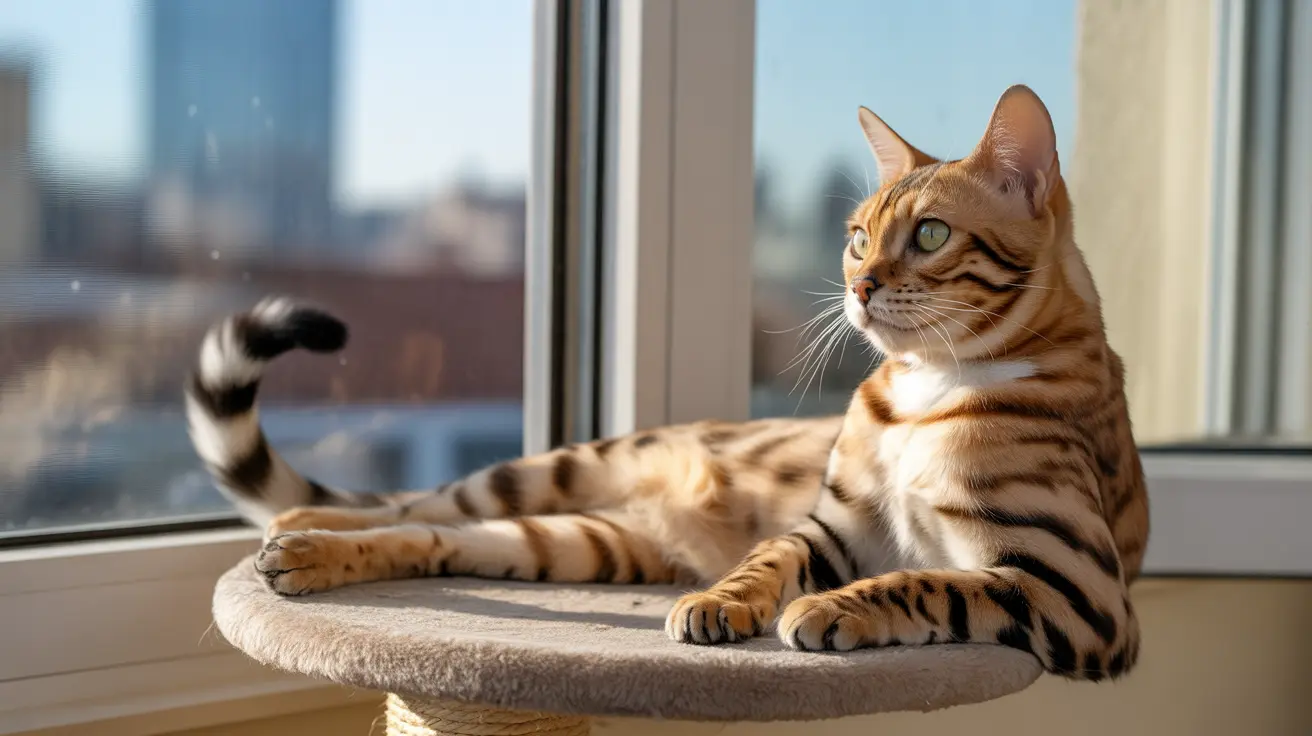The Essential Role of Air in Feline Health
A cat's respiratory system is a remarkable piece of biological engineering that serves multiple crucial functions. Beyond the basic need for oxygen, air plays a vital role in various aspects of feline health and behavior.
The primary function involves taking in oxygen through the nose or mouth, where it travels through the respiratory tract to the lungs. Here, oxygen enters the bloodstream while carbon dioxide is expelled - a process known as gas exchange that's essential for life.
How Cats Process and Utilize Air
Cats have evolved sophisticated respiratory mechanisms that help them process air efficiently. Their nasal passages contain specialized structures that filter particles and regulate temperature, while their lung capacity is precisely tuned to their size and activity level.
The respiratory system also supports important secondary functions such as:
- Scent detection and processing
- Temperature regulation
- Vocalization
- Immune system support
Benefits of Fresh Air for Cats
While cats can survive on indoor air, access to fresh air provides numerous health benefits:
- Enhanced mental stimulation through new scents and sounds
- Better sleep-wake cycle regulation
- Improved physical activity levels
- Reduced stress and anxiety
- Strengthened immune system response
- Natural hunting and exploration opportunities
Creating a Safe Fresh Air Environment
There are several ways to provide your cat with fresh air while maintaining their safety:
- Install secure window screens
- Create a catio or enclosed outdoor space
- Use a cat-specific harness for supervised outdoor time
- Set up a ventilated indoor space near windows
- Consider installing cat-safe window perches
The Impact of Air Quality on Cat Health
Indoor air quality significantly affects a cat's respiratory health. Poor ventilation or air quality can lead to:
- Respiratory infections
- Allergic reactions
- Lethargy
- Behavioral issues
- Reduced immune function
Frequently Asked Questions
Why does my cat need fresh air if indoor air is clean?
While clean indoor air meets basic respiratory needs, fresh air provides additional benefits including mental stimulation, natural light exposure, and environmental enrichment that support overall well-being and natural behaviors.
How does air benefit a cat's respiratory system and overall health?
Air supports essential functions like oxygen delivery to cells, waste gas removal, temperature regulation, and scent detection. Fresh air specifically helps maintain healthy sleep patterns and immune system function.
What are safe ways to provide fresh air access to indoor cats?
Safe options include secured screen windows, catios, supervised harness walks, and enclosed balconies. Always ensure all access points are properly secured to prevent escapes.
Can lack of fresh air cause behavioral or health issues in cats?
Yes, limited access to fresh air can lead to increased stress, lethargy, behavioral problems, and potentially compromised immune function. Cats may show signs through excessive vocalization or destructive behavior.
How does outdoor air exposure help regulate a cat's circadian rhythm and immune system?
Natural light and fresh air help maintain normal sleep-wake cycles, while exposure to outdoor environments provides beneficial microorganisms that support immune system development and function.
Conclusion
While cats can adapt to indoor living, providing safe access to fresh air significantly enhances their quality of life. By understanding what cats need air for and implementing appropriate fresh air solutions, we can help our feline companions live healthier, more enriched lives while keeping them safe from outdoor hazards.






